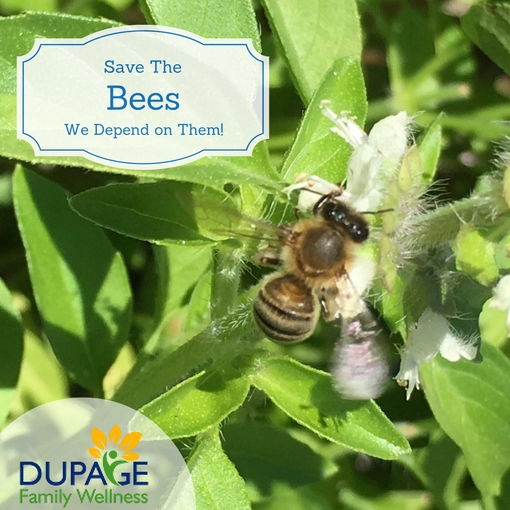
There is a buzz about bees in the media lately. The bee populations have been declining. Why is this so important?
“If the bee disappeared off the surface of the globe, then man would have only four years of life left. No more bees, no more pollination, no more plants, no more animals, no more man.” --- attributed to Albert Einstein
Did you know that one in every three bites of food originates from plants either pollinated by honeybees or other pollinators (butterflies and moths)?
Although there is not one leading cause for the decline in the honey bee population, several recent occurrences have become the perfect storm and are being blamed for this sudden decline.
- Chemicals. The emergence and dramatic increase in the use of pesticides and herbicides has a detrimental effect on bees. The chemicals are ingested as the bees make their regular pollination rounds. A specific class of pesticides called neonicotinoids causes particular concern. These synthetic pesticides are commonly used in farming and home landscaping and are a featured ingredient in many standard brand name gardening products. Unfortunately, there is no label that a pesticides or insecticide may be harmful to bees, and the active ingredient has many different names including Acetamiprid, Clothianidin, Dinotefuran, Imidacloprid, Nitenpyram, Thiocloprid, Thiamethoxam.
- Electromagnetic radiation. Another modern day convenience, cell phone and wireless communication towers, has dramatically increased the amount of electromagnetic radiation in the atmosphere. This radiation is thought to effect the ability of the honey bee to navigate its way back to its hive. A study done at a German University found that honeybees would not return to their hive when cell phones were placed nearby.
- Global Warming. Scientists suspect that global warming has caused an increase in the population of mites, viruses, and fungi that are known to attack bee colonies. Furthermore,dramatic hot and cold temperature swings may interfere with bee populations accustomed to more consistent seasonal temperatures.
What is the impact?
A Whole Foods in Providence, Rhode Island demonstrated the drastic impact that the loss of honeybees and other pollinators could have on our food (see photos). They removed the food from their shelves that would no longer exist without these valuable insects. 237 of 453 products (52%) had to be removed. More than 85% of the plant species on Earth require pollinators to exist. Among the most popular produce items to be removed include apples, onions, avocados, carrots, mangos, lemons, limes, honeydew, cantaloupe, zucchini, summer squash, eggplant, cucumbers, celery, green onions, cauliflower, leeks, bok choy, kale, broccoli, and mustard greens.
What can you do? In order to turn this around, commit to being part of the change.
- Buy organic. Organic food is not only better for your health, it’s one of the simplest ways you can support the health of pollinating insects.
- Be conscious of the products you are using. There are many ways to solve lawn and garden pest problems without using harsh chemicals. Use google to find natural remedies.
- Garden. When you grow clean flowers and fruit, you provide healthy plants for bees and other pollinators to pollinate.

